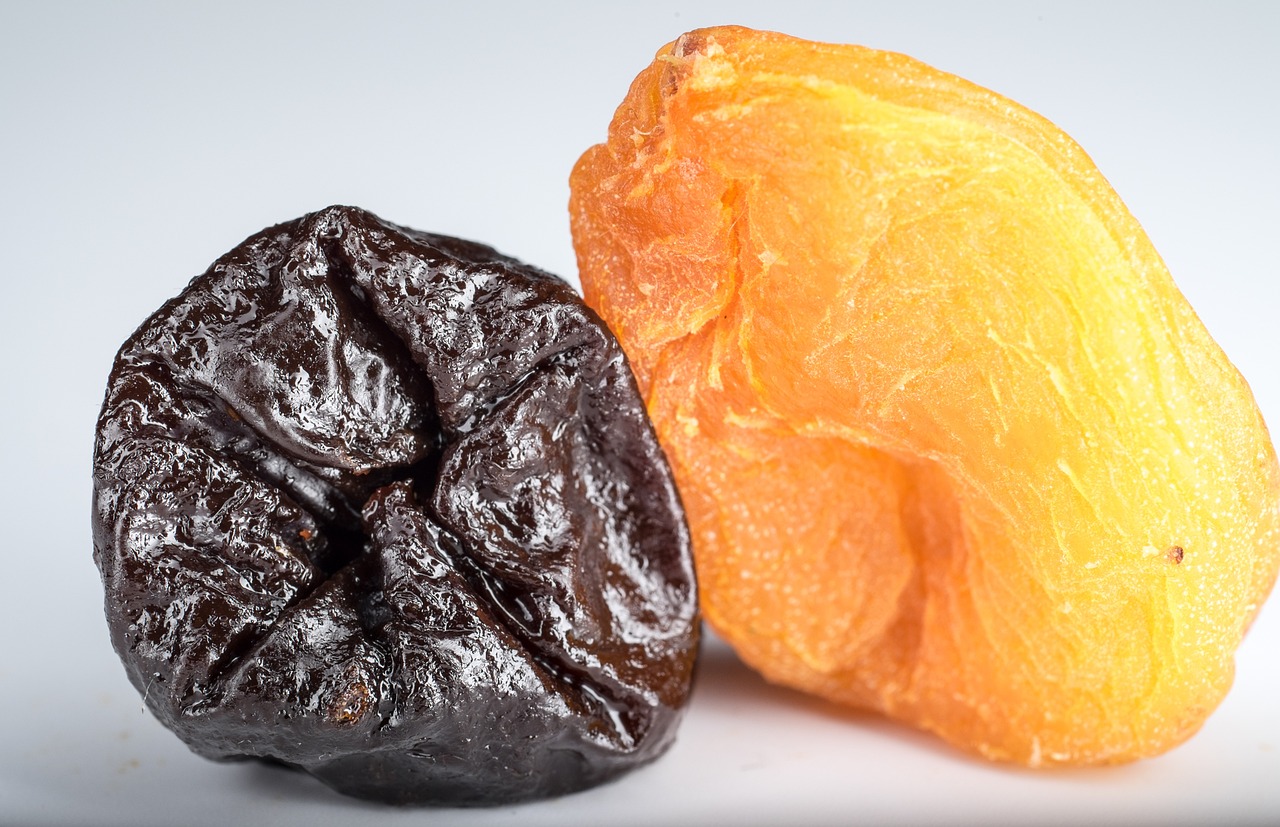Discover the extraordinary health benefits of prunes, a dried fruit that packs a punch when it comes to nutrition. Often associated with digestive health, prunes offer a range of advantages for overall well-being. In this article, we explore the various ways prunes can boost your health and why they deserve a place in your diet.
Digestive Health and Regularity
Prunes are renowned for their ability to promote healthy digestion and alleviate constipation. Their high fiber content, both soluble and insoluble, helps regulate bowel movements and prevent digestive issues. Additionally, prunes contain natural sugars like sorbitol, which acts as a mild laxative, aiding in smooth bowel function.
Bone Health and Osteoporosis Prevention
Rich in essential minerals like potassium, magnesium, and vitamin K, prunes contribute to strong and healthy bones. These nutrients play a crucial role in maintaining bone density, preventing osteoporosis, and reducing the risk of fractures. Prunes also contain polyphenols that may help protect against bone loss.
Antioxidant Powerhouse
Prunes are packed with antioxidants that combat free radicals and protect the body against oxidative stress. These antioxidants, including phenolic compounds and vitamin C, help reduce inflammation, support a healthy immune system and may contribute to a lower risk of chronic diseases such as heart disease and certain types of cancer.
Heart Health and Cholesterol Management
The soluble fiber found in prunes helps lower LDL cholesterol levels, reducing the risk of cardiovascular diseases. Potassium, another nutrient in prunes, supports heart health by regulating blood pressure levels. Additionally, the antioxidants in prunes contribute to overall cardiovascular well-being.
Blood Sugar Control and Diabetes Management
Despite their natural sweetness, prunes have a low glycemic index, meaning they release sugar into the bloodstream slowly. This characteristic makes them a suitable option for individuals with diabetes or those aiming to manage blood sugar levels. The fiber content in prunes also aids in controlling blood sugar spikes.
Cognitive Function and Brain Health
Prunes contain beneficial compounds that may enhance cognitive function and support brain health. Their antioxidant properties help protect brain cells from damage caused by oxidative stress. Additionally, prunes provide nutrients like potassium, vitamin K, and B vitamins, which are essential for brain function.
Certainly! Here are a few more health benefits associated with consuming prunes:
Weight Management
Despite being sweet, prunes can be a helpful addition to a weight management plan. The high fiber content in prunes promotes feelings of fullness and can help control appetite, making it easier to manage calorie intake.
Eye Health
Prunes contain vitamins A and E, which are important for maintaining healthy vision. These vitamins, along with other antioxidants found in prunes, help protect the eyes from age-related macular degeneration (AMD) and other eye conditions.
Skin Health
The antioxidants and vitamin C in prunes can contribute to healthier skin by protecting against oxidative damage and promoting collagen production, which helps maintain skin elasticity and reduces the appearance of wrinkles.
Improved Iron Absorption
Prunes are a good source of vitamin C, which enhances the absorption of non-heme iron from plant-based foods. Including prunes alongside iron-rich foods can help optimize iron uptake and prevent iron deficiency anemia.
Gut Health
Prunes contain both soluble and insoluble fiber, which can promote a healthy gut microbiome. The fiber acts as a prebiotic, feeding the beneficial bacteria in the gut and supporting digestive health.
Anti-inflammatory Effects
Prunes contain various phytochemicals and antioxidants that possess anti-inflammatory properties. Regular consumption of prunes may help reduce inflammation in the body, which is associated with several chronic diseases.
Improved Bone Density
Prunes are a rich source of minerals like potassium, magnesium, and boron, which are essential for maintaining healthy bones. Regular consumption of prunes may help improve bone density and reduce the risk of osteoporosis.
.Enhanced Athletic Performance
Prunes contain carbohydrates, antioxidants, and potassium, which can aid in post-exercise muscle recovery and replenishment of glycogen stores. Including prunes as a part of a balanced diet can support athletic performance and recovery.
It’s important to note that while prunes offer numerous health benefits, they should be consumed in moderation as part of a well-rounded diet. If you have any specific health concerns or conditions, it’s always best to consult with a healthcare professional r registered dietitian for personalized advice.
Conclusion
From improving digestion and supporting bone health to protecting the heart and enhancing cognitive function, prunes offer an array of health benefits. Incorporating these nutrient-dense dried fruits into your diet can contribute to overall well-being. Embrace the power of prunes and enjoy their delicious taste while reaping the numerous advantages they have













